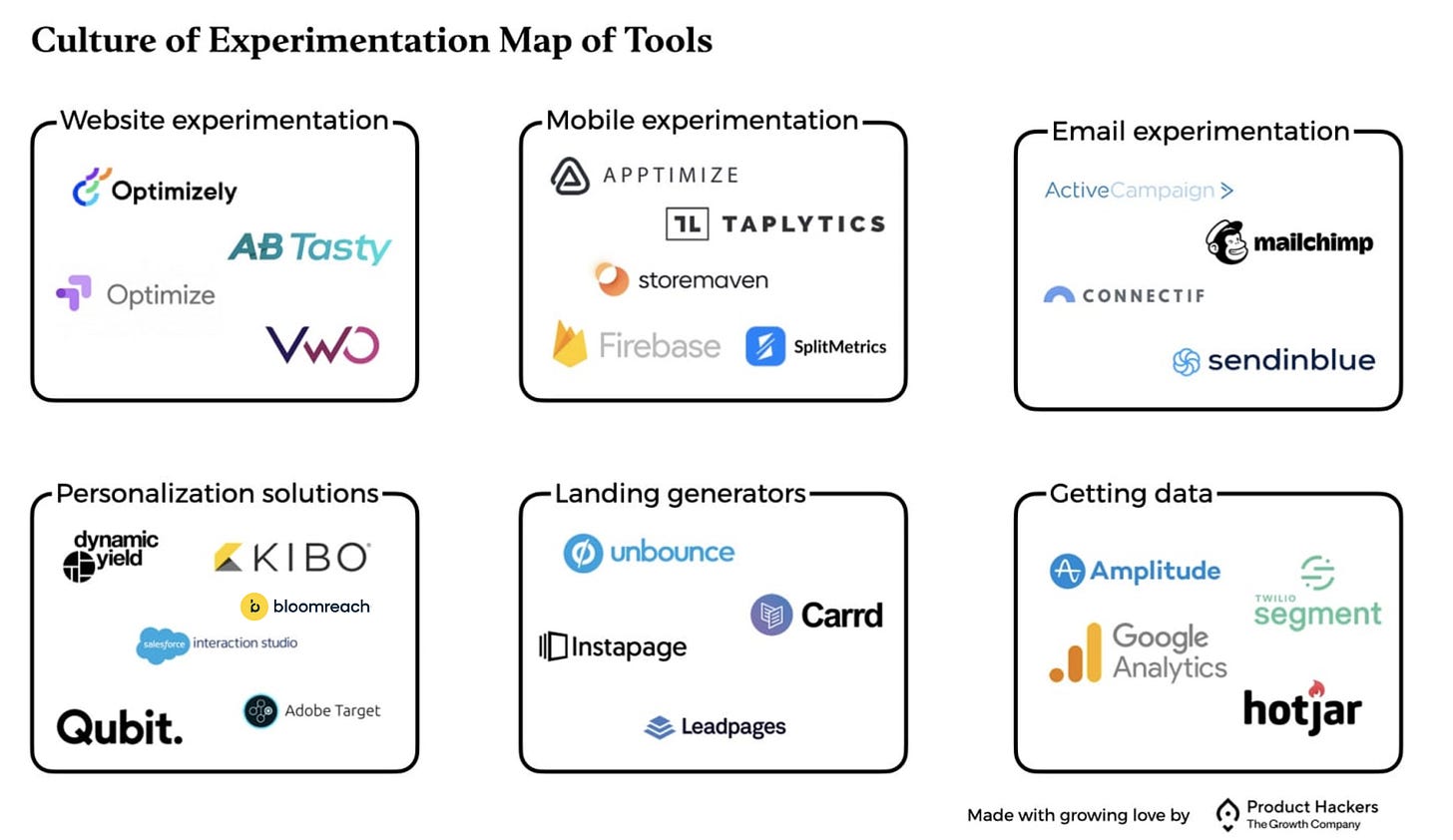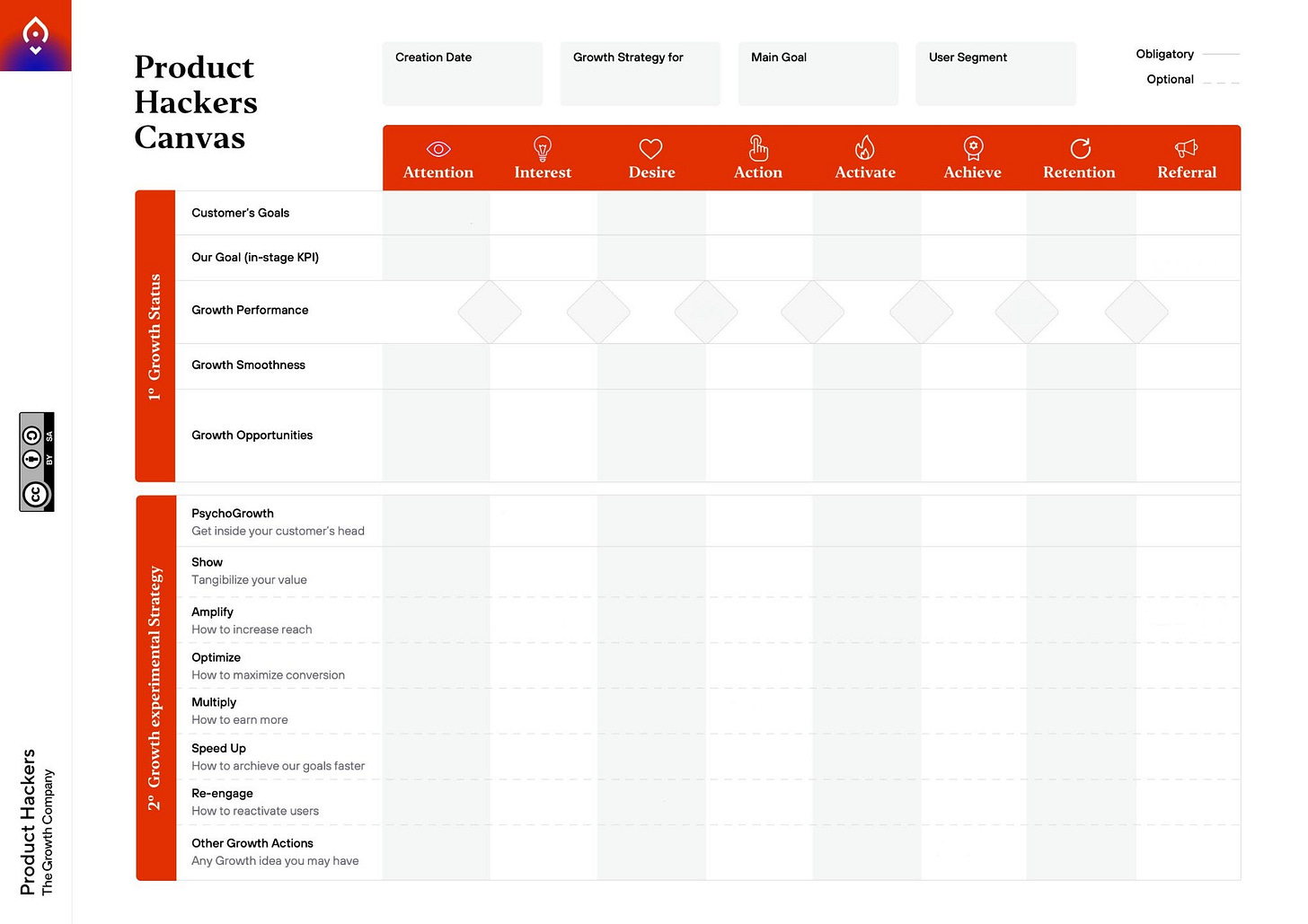🌊 Framework: Culture of Experimentation
Welcome! I’m Ivan Landabaso, VC at JME.vc. Join 1.65K+ Startup Riders discovering new tech waves, startup trends & leverage bi-weekly (+ surfing 🤙)
Summary
🌊 Wave: Culture of Experimentation
🦾 Leverage: Breathing Hack
🇪🇸 Deals: Tiko, Colvin, PSquared, Ritmo and more!
Welcome back Startup Riders! Hopefully all fresh and fired up after the summer, and if not, let’s get you there. Today my friends Corti and Chus from Product Hackers take you down a “Culture of Experimentation” rabbit hole. Lets go 👇
Culture of Experimentation 🧪
😟 Problem
Businesses often make bad decisions. Addressing them systematically is usually very hard.
🤩 Solution
Applying the scientific method to business decision-making - creating hypotheses instead of final decisions - and testing hypotheses with small experiments to get real data that can confirm or reject them.
⏳ How we got here
“The Hacker Way is an approach to building that involves continuous improvement and iteration. Hackers believe that something can always be better, and that nothing is ever complete”.
Mark Zuckerberg, The Hacker Way
Most traditional businesses approach product and service development with a non-failure mindset. They create sophisticated plans that need to be carefully carried out with no margin for errors.
This approach makes sense with most traditional industries that require a large investment to create their products, and once they have been created, there is no turning back. If you design and assemble a car, you’ll be investing millions of dollars before even beginning to sell the car, so you can’t afford any risk.
Software has changed everything. Now we can create products that can be modified at any point, and our users can enjoy the new features or improvements as soon as they are published.
With software based products, there is no big upside to having everything under control before launching the product. It’s easier and more productive to launch a reduced version of the product, and then start monitoring data usage to make improvements and adapt it to our customer’s real needs.
From the Agile manifesto, to the Minimum Viable Product concept, startups have brought to the world a new way of doing things based on trial and error + continuous improvement.
“One area where I think we are especially distinctive is failure. I believe we are the best place in the world to fail (we have plenty of practice!).
Failure and invention are inseparable twins. To invent you have to experiment, and if you know in advance that it’s going to work, it’s not an experiment.
Most large organizations embrace the idea of invention, but are not willing to suffer the string of failed experiments necessary to get there.”
Jeff Bezos, Amazon’s annual shareholder letter, 1997.
The Culture of Experimentation goes one step further.
It involves implementing new ideas or solutions throughout your organization, without restricting these things to only certain departments. Experimentation needs to be embraced across the entire company, and everyone in the company must have a mindset that is open to testing any new ideas.
It also involves the enabling the company to measure everything in a way that allows it to rely on data to validate an initial hypothesis.
Booking.com is a great example of a company that embraces the culture of experimentation. One of the company’s rules is that anyone at the company can test anything without management’s permission.
In a normal day, Booking.com is running more than 1,000 experiments on their website. This results in a website that is different for every user and that is being improved all the time.
Booking isn’t the only company that uses experimentation to improve. In 2012 a Microsoft employee working on Bing proposed a new way for the search engine to display headlines. It was considered a “low priority” by the product managers, so it wasn’t going to see the light of day. But an engineer saw that it required almost no work, so he decided to launch an A/B test. In a few hours, the experiment was producing results that were “too good to be true.” But it was no bug, and that experiment alone produced a 12% increment in revenues with a business impact of hundreds of millions of dollars.
“Unless companies learn to challenge their current ways of thinking, they will not be able to survive.
If a company is lucky enough to have a CEO who is visionary and can set the stage, it is easier for people to start exploring.”
Jerry Wind, Wharton School.
🚀 Today's Market Map
Market Map
Framework
At Product Hackers, we have developed our own framework to guide our work with experimentation with our customers. This framework is called the Product Hackers Canvas, and it serves as a lighthouse to showcase experimental possibilities in each phase of the relationship with the customer.
You can create a copy of our Product Hackers Canvas spreadsheet template and adapt it to your own needs.
👌 Hacks
Question everything. You can’t get further than anyone if you just follow in their footsteps.
Start by measuring everything right. Most companies don’t have reliable analytics, and that prevents them from generating the right culture for experimentation to thrive.
Order the potential experiment according to ICE (Impact, Confidence, Ease). ICE helps you to focus on the experimental ideas with the highest impact which are easiest to test.
Integrate Google Tag Manager in your website, so you can test new tools without having to depend on other help or from your tech team.
Stay up to date with relevant changes in acquisition channels (Facebook, Instagram, Tiktok, LinkedIn, SEO…) to discover new possibilities and define tests that could help you to unlock new acquisition opportunities.
Create a mechanism that allows anyone in your organization to propose ideas for new experiments.
🐇 Follow the White Rabbit 🕳️
We are creating the most comprehensive study regarding Culture of Experimentation in Spain and Latin America. Please, help us by answering a few questions, so we can process the responses and provide a set of useful insights regarding this topic! 🙏🙌
👉 https://producthackers.typeform.com/to/cA2dyXSV
🦾 Breathing Hack
💵 Recent Deals In Spain
You love startups and want to enjoy a Spanish lifestyle? Come join the Spanish startup ecosystem. Here’s a list of recently funded startups:
Tiko (proptech) raised 50M
Colvin (flower delivery) raised 45M
PSquared (proptech) raised 40M
EasyCharger raised 25M
Lookiero (fashion) raised 25M
Exoticca (travel tech) raised 25M
Cobee (flexible benefits) raised 14M
Ritmo (non-dilutive capital) raised 13.8M
Cella Medical Solutions (health) raised 10M
VEnvirotech (biotech) raised 10M
Asistensi (insurance) raised 8M
Zeleros (mobility) raised 7M
Trucksters (transport) raised 6M
Councilbox (legal) raised 5M
TherapyChat (mental health) raised 5M
Divilo (fintech) raised 4M
Qlip (proptech/moving software) raised 3.5M
UnusuAll (gaming) raised 3M
Meep (mobility as a service) raised 3M
Bit2Me (crypto) raised 2.5M
Coinscrap (finance) raised 2.2M
Kaleidos (software) raised 2M
Ludus (VR) raised 2M
CodeOp (edtech) raised 1.25M
Promos (data) raised 840K.
Finteca (mortgage) raised 750k
StadioPlus (sport NFTs) raised 700K
Solum (energy) raised 700K
Plexigrid (energy software) raised 300K
MissCar (mobility) raised 300K
iCloudCompliance (compliance software) raised 200K
Worsible (freelance services marketplace) raised 200K
Biboss (task marketplace) rasied 200K
Wonderfood (food) raised 80K







